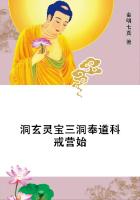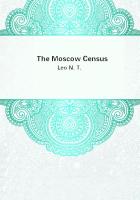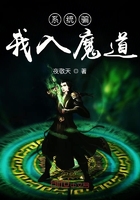The revision of the sentence could not be made without an order from the high court. For my own part, before the verdict was given I had resolved to make no appeal to this court of cassation of the old jurisprudence. But Patience's bearing and words had had as much effect on my mind as on the minds of the spectators. The spirit of resistance and the sense of human dignity, dulled in me and paralyzed, as it were, by grief, suddenly awoke again, and in this hour I realized that man is not made for that selfish concentration of despair which is known as resignation or stoicism. No man can cease to have a regard for his own honour without at the same time ceasing to feel the respect due to the principle of honour. If it is grand to sacrifice personal glory and life to the mysterious decrees of conscience, it is cowardly to abandon both to the fury of an unjust persecution. I felt that I had risen in my own estimation, and I passed the rest of this momentous night in devising means of vindicating myself, with as much persistence as I had previously displayed in abandoning myself to fate. With this feeling of energy I could feel hope springing up anew.
Edmee, perhaps, was neither mad nor mortally wounded. She might acquit me; she might recover.
"Who knows?" I said to myself. "Perhaps she has already done me justice. Perhaps it was she who sent Patience to my rescue.
Undoubtedly I shall best please her by taking courage again, and not letting myself be crushed by a set of knaves."But how was I to obtain this order from the high court? It needed a special mandate from the King; who would procure this? Who would cut short those odious delays which the law can introduce at will into the very cases that it has previously hurried on with blind precipitation?
Who would prevent my enemies from injuring me and paralyzing all my efforts? In a word, who would fight for me? The abbe alone could have taken up my cause; but he was already in prison on my account. His generous behaviour in the trial had proved that he was still my friend, but his zeal was now fettered. And what could Marcasse do, hampered by his humble birth and enigmatical language? Evening came, and I fell asleep in the hope that help would be sent from on high;for I had prayed to God with my whole soul. A few hours of sleep refreshed me; I was aroused by the noise of bolts being drawn at the other side of my door. O God of goodness! what was my delight on seeing Arthur, my brother in arms, my other self, the man from whom Ihad had no secret for six long years! I wept like a child on receiving this mark of love from Providence. Arthur did not believe me guilty!
Scientific matters connected with the library at Philadelphia had taken him to Paris, where he had heard of this sad affair in which Iwas implicated. He had broken a lance with all who attacked me, and had not lost a moment in coming to offer help or consolation.
In a transport of joy I poured out my soul to him, and then explained how he could assist me. He wanted to take the coach for Paris that very evening; but I implored him to go to Sainte-Severe first of all to get news of Edmee. Four mortal days had passed since I had received any; and, moreover, Marcasse had never given me such exact details as I could have wished.
"Ease your mind," said Arthur. "I will undertake to bring you the truth. I am a pretty good surgeon; and I have a practised eye. I shall be able to give you some idea of what you have to hope or fear. From Sainte-Severe I shall go straight to Paris."Two days later I received a long letter from him giving full details about Edmee.
Her condition was extraordinary. She did not speak, nor did she appear to be in pain as long as nothing happened to excite her nerves; but on the first word which stirred up recollections of her troubles she would be seized with convulsions. Her moral isolation formed the greatest obstacle to recovery. Physically she wanted for nothing; she had two good doctors and a most devoted nurse. Mademoiselle Leblanc likewise was very zealous in her attentions, though this dangerous woman often gave her pain by untimely remarks and indiscreet questions. Furthermore, Arthur assured me that, if ever Edmee had thought me guilty and had expressed an opinion on this point, it must have been in some previous phase of her illness; for, during the last fortnight at least, she had been in a state of complete torpor. She would frequently doze, but without quite falling asleep; she could take liquid food and jellies, nor did she ever complain. When her doctors questioned her about her sufferings she answered by careless signs and always negatively; and she would never give any indication that she remembered the affections which had filled her life. Her love for her father, however, that feeling which had always been so deep and powerful in her, was not extinct; she would often shed copious tears; but at such a time she seemed to be deaf to all sounds; in vain would they try to make her understand that her father was not dead, as she appeared to believe. With a gesture of entreaty she would beg them to stop, not the noise (for that did not seem to strike her ear), but the bustle that was going on around her; then, hiding her face in her hands, lying back in her arm-chair and bringing her knees up almost to her breast, she would apparently give way to inconsolable despair.














